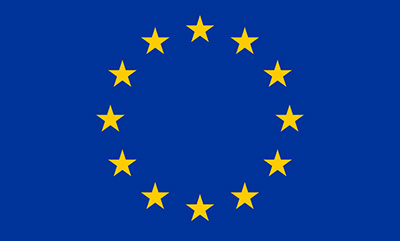GUIDANCE ON INTELLECTUAL PROPERTY RIGHTS AFTER BREXIT
German translation needed? click here >>>
The United Kingdom (UK) is currently scheduled to leave the European Union (EU) on 31 January 2020. While it is not clear at the moment as to whether a deal will be made between the UK and the EU – although Prime Minister Boris Johnson's Brexit withdrawal agreement was approved by the House of Commons on 9 January 2020, it has since moved to the House of Lords for further deliberation –, and if so, how certain particulars of a deal would look like, the following will serve as guidance on the fate after Brexit of any intellectual property rights which may have thus far extended to the UK.
In light of the current situation, we at WUESTHOFF & WUESTHOFF will continue to be able to represent clients at the UK Intellectual Property Office (UKIPO) after Brexit irrespective of whether there is a deal or not. As some scenarios in relation to your intellectual property rights may be somewhat complicated and not explicitly covered by the general outline below, we would be pleased to provide any specific advice in order to support you and your clients during this transition.
PATENTS
With or without a deal between the UK and the EU, there will be no change with respect to European patent applications and patents before the European Patent Office (EPO). This is due to the EPO not being an EU institution and the European Patent Convention (EPC) not being related to any EU law. As a result, the UK can still be designated in a European patent application which will after grant also be valid in the UK, as it continues to be a contracting state to the EPC.
Pending Germany’s ratification of the Unified Patent Court (UPC), which is currently put on hold due to pending proceedings based on a challenge having been brought in the German Federal Constitutional Court (Bundesverfassungsgericht) regarding the constitutionality of the law passed by German Parliament on the UPC implementation, involvement of the UK in the UPC and Unitary Patent system following Brexit is currently not known. We will keep you posted as and when news on the UPC front arises.
TRADE MARKS
The UKIPO will bring into existence a so-called “comparable trade mark (EU)” on the UK trade mark register, which derives from a corresponding EU trade mark, in case there is no deal and no transitional period applies at 11pm on the day the UK leaves the EU (“exit day”). The comparable trade mark (EU) will be dealt with at the UKIPO as if it were a national trade mark. It will have the same expiry and renewal date as the corresponding EU trade mark. The goods and services covered by the comparable trade mark (EU) will be taken over from the English language version of the corresponding EU trade mark.
The same representative on file in relation to the corresponding EU trade mark will be recorded on the UK trade mark register as the address for service with respect to the comparable trade mark (EU).
Any use of the trade mark in the EU before exit day will count as use of the comparable trade mark (EU). Be advised that in case a trade mark is used in the UK only, the existing EU trade mark may be attacked for non-use. Corresponding considerations apply to the comparable trade mark (EU) if it is only made use of in the remaining EU countries. Your strategic operations may therefore need to be revisited.
The above will also be applicable for EU designations on International Registrations where a Statement of Grant of Protection has been issued in relation to the EU designation.
No comparable trade mark (EU) will be created automatically for an EU trade mark application pending on exit day. The trade mark application will need to be re-filed at the UKIPO within nine months following exit day in order for the UK trade mark application to claim the same filing, priority and seniority dates as the pending EU trade mark application. This is also applicable to any EU designations of International Trade marks for which a Statement of Grant of Protection has not been issued by exit day.
If the current withdrawal agreement is approved by the House of Lords, the holder of an EU trade mark will become the holder of a UK trade mark consisting of the same sign and for the same goods and services.
DESIGNS
Similar to trade marks, in case there is no deal and no transitional period at 11 pm on exit day, the UKIPO will create a so-called “re-registered design” on the UK design register which derives from the corresponding registered community design (RCD). Again, the same representative on file in relation to the corresponding RCD will be recorded on the UK design register as the address for service with respect to the re-registered design. Furthermore, the re-registered design will have the same expiry and renewal date as the corresponding RCD.
The above will also be applicable for EU designations on International Registrations where a Statement of Grant of Protection has been issued in relation to the EU designation. A re-registered international design will be created on the UK design register.
In line with the above considerations relating to trade marks, no re-registered design will be created automatically for an RCD application pending on exit day. The design application will need to be re-filed at the UKIPO within nine months following exit day in order for the UK design application to claim the same filing and priority dates as the pending RCD application. This also involves RCD applications which have been accepted but publication has been deferred and pending RCD applications restored after exit day (not refused RCD applications). The foregoing is equally applicable to any EU designations of International Registrations for which a Statement of Grant of Protection has not been issued by exit day.
A “continuing Community unregistered design” will automatically be derived from the corresponding unregistered Community design with the same details, in particular the same scope of protection and expiry date, if there is no deal and no transitional period at 11pm on exit day.
Similar to trade marks, if the current withdrawal agreement is approved by the House of Lords, the holder of a registered Community design and, where applicable, published following deferral of publication will become the holder of a registered design right in the UK for the same design.
SUPPLEMENTARY PROTECTION CERTIFICATES (SPCS)
SPCs granted in the UK before exit day will not be affected by the departure of the UK from the EU, as SPCs are national rights.
For SPC applications which are pending or filed in the UK after exit day, the current EU regulation continues to be applicable during a transitional period in case a deal is agreed upon between the UK and the EU. In case of a no-deal Brexit, pending UK SPC applications and those filed after exit day will be treated based on equivalent UK domestic law.
There is no need to re-file any SPC applications as they are in any case examined by the UKIPO and in view of the respective laws applicable not being changed as a result of Brexit.
PLANT VARIETY RIGHTS
In case there is no deal between the UK and the EU, a Community Plant Variety Right which was granted two months before exit day will automatically become a UK Plant Variety Right under UK law. If such a Community Plant Variety Right has not been granted at least two months before exit day, the protective right needs to be applied for in the UK with the UK Animal and Plant Health Agency (APHA). The two-month period stems from the EU having a two-month appeal period and APHA cannot protect plant varieties in the UK which can be appealed.
A plant variety right should in any case be applied for in the UK within six months of exit day so that the same distinctiveness, uniformity and stability test can be used.
If the current withdrawal agreement is approved by the House of Lords, the holder of a Community Plant Variety Right will become the holder of a plant variety right in the UK for the same plant variety.
Many questions remain as to what Brexit will ultimately mean for businesses and their IP. In particular, certain details relating to IP rights of a possible deal between the UK and the EU are currently unknown. In light of this uncertainty, we at WUESTHOFF & WUESTHOFF will continue to review this matter and support our clients during this transitional period.
Please contact us at wuesthoff(at)wuesthoff.de for further information.



